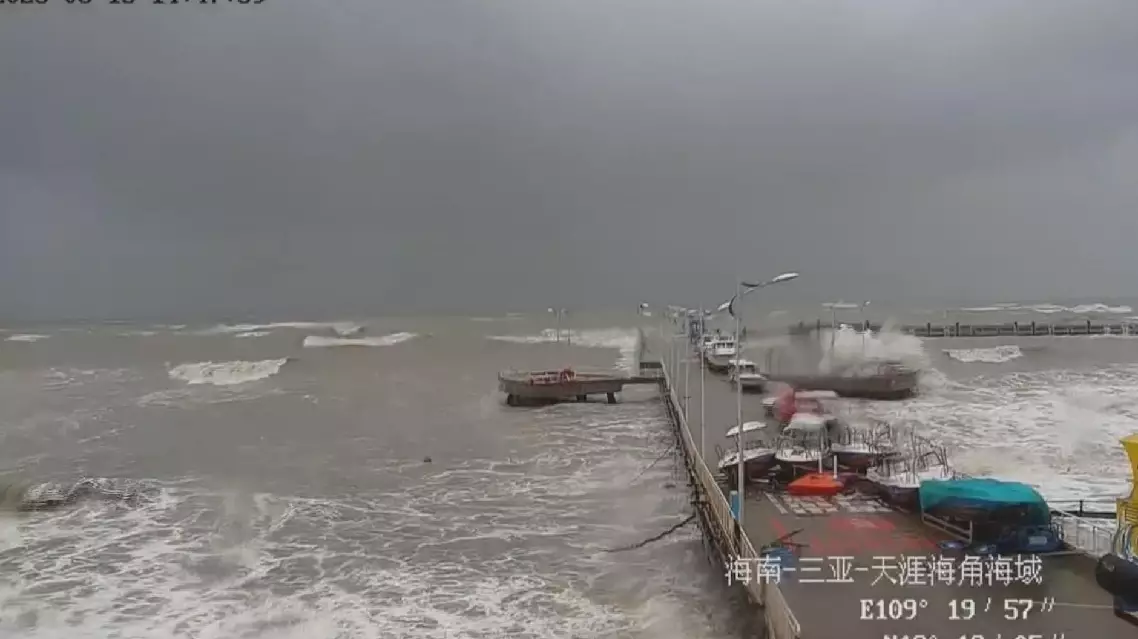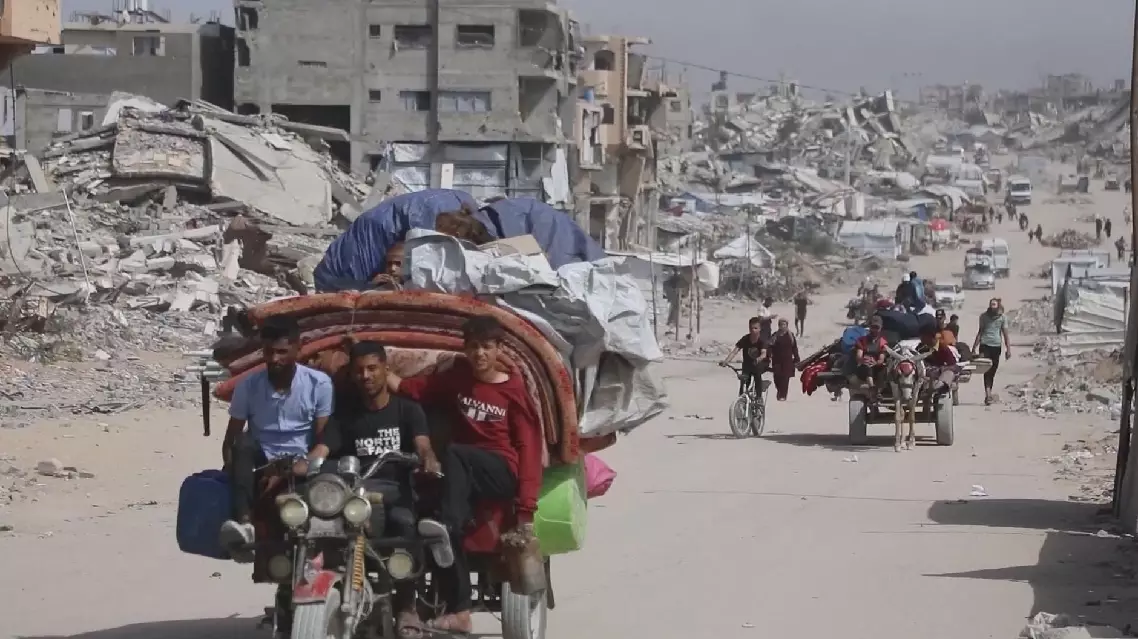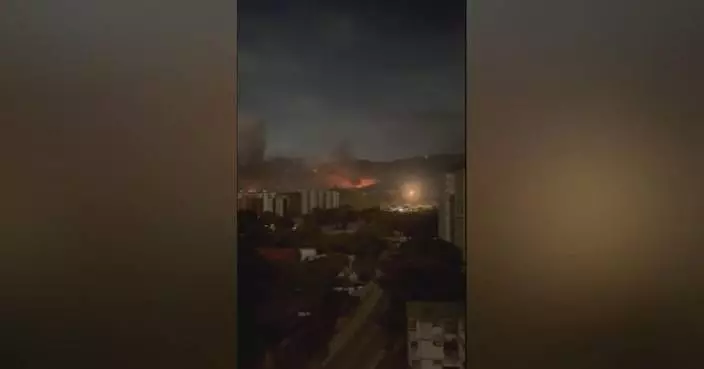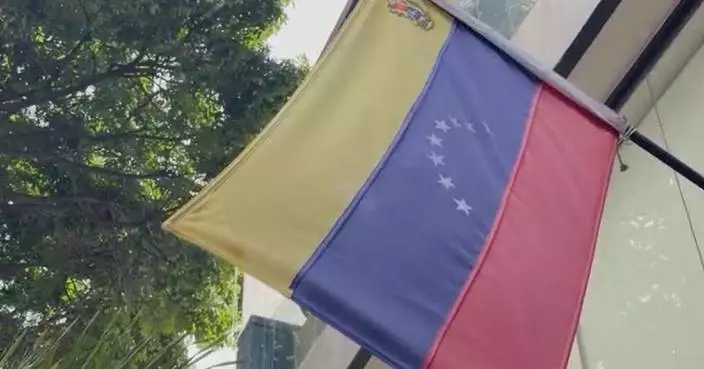Typhoon Wutip, the first typhoon of the year, made landfall near Dongfang City in south China's island province of Hainan at around 23:00 on Friday, according to the Hainan Meteorological Service.
At the time of landfall, Wutip had weakened to a severe tropical storm, with maximum sustained winds of 30 meters per second near its center and a central minimum pressure of 980 hectopascals.
South China’s Hainan Province, Guangdong Province, and Guangxi Zhuang Autonomous Region are actively implementing measures to lessen the impact of the typhoon.
On Friday, gusts reaching level 10 hit Hainan's Ledong Li Autonomous County. The strong winds forced a local power plant to suspend operations.
Wutip also brought powerful winds and massive waves to the wharfs at Tianya Haijiao, a popular tourist destination in Sanya City. Earlier, the local marine bureau had evacuated all crew members and secured small vessels ashore in the area.
Meanwhile, maritime search and rescue operations are underway in response to the typhoon's impact. In the early hours of Friday, the South China Sea Rescue Bureau successfully rescued 12 crew members from a cargo ship stranded in the storm's path.
The bureau has deployed seven rescue vessels and four helicopters across its operational area, maintaining full readiness for typhoon response and emergency rescue missions.
In addition, Haikou City in Hainan has stockpiled approximately 4,500 tons of vegetables in advance to ensure stable supply and prices as the typhoon approaches.
"This vegetable retail outlet will maintain normal operating hours during the typhoon. We will flexibly arrange additional deliveries based on sales and market demand to ensure a stable supply of affordable and safe vegetables for residents," said Zeng Jimei, deputy manager of a local vegetable retail outlet.
"We don't need to leave our community, because all our basic daily needs are met here," said a Haikou resident.
In Zhanjiang, a coastal city in Guangdong, all schools have been closed citywide in preparation for the approaching typhoon. Local authorities are fully prepared to relocate residents from vulnerable areas if necessary.
Multiple coastal railways in southern China have adjusted their operations, with some services suspended due to safety concerns.
On Friday, China raised its flood and typhoon emergency response from Level IV to Level III for southern coastal provinces, deploying specialist teams to vulnerable regions to assist with disaster prevention efforts.

Typhoon Wutip makes landfall in China's Hainan









